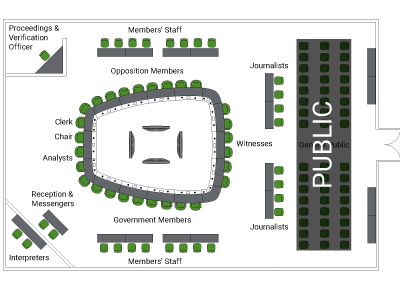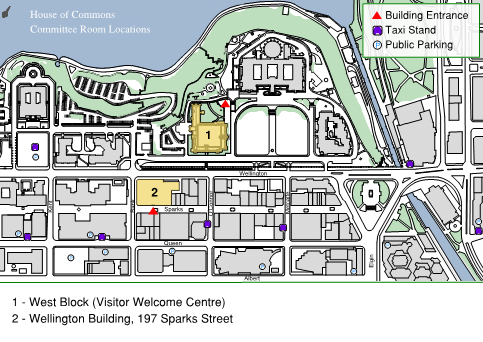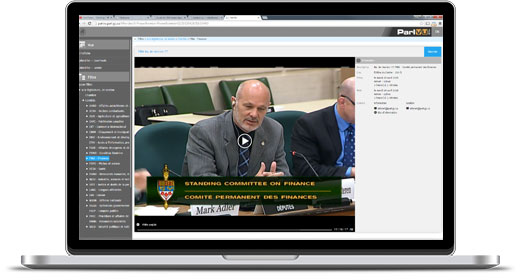The 44th Parliament was dissolved on March 23, 2025.
Dissolution is the formal ending of a Parliament by proclamation of the Governor General. A general election must follow dissolution. In practice, as soon as Parliament is dissolved, committees can neither sit nor report to the House, as they cease to exist until the House reconstitutes them following the election.
Upon dissolution, all business before committees is terminated. All orders of reference expire, and the Chairs and Vice-Chairs of all committees cease to hold office.
The government is no longer required to provide responses to committee reports.
The information on these pages refers to committees and their work before Parliament was dissolved.
Learn MoreParticipate

A brief is a written submission that provides opinions, comments and recommendations on a subject being studied by a parliamentary committee. Any individual or organization may submit a brief to a committee of the House of Commons, even if they are not given the opportunity to appear before the committee.
How to submit a brief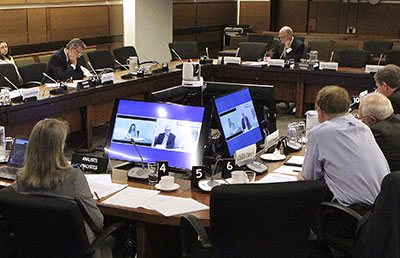
Committees regularly invite private citizens, experts, representatives of organizations, public servants and ministers to appear before them in order to elicit information (receive evidence) relevant to the study under consideration. These consultations allow witnesses to set out and clarify their point of view, which is often presented in a written brief, and gives members of the Committee the opportunity to ask questions.
Prepare to appear before a committee
Any citizen or organization interested in sharing their opinion in person or by videoconference regarding a study being carried out by a committee may request to appear before it by sending an email to the committee clerk. The individual or organization must indicate in the email their specific interest and area of expertise in relation to the study. The clerk will then forward the request to appear to the committee members. The committee will evaluate the requests and draw up the list of witnesses, based on committee practice. It is important to communicate your interest as quickly as possible, because committees typically establish the list of witnesses at the start of their study.
Contact a committee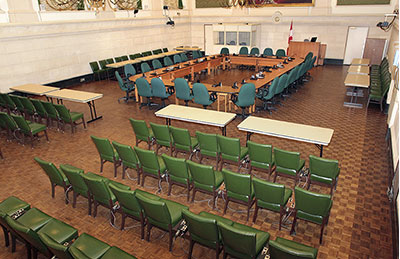
With the exception of in camera meetings, committee meetings are generally open to the public. Most meetings are held in one of the committee meeting rooms on Parliament Hill, but from time to time, committees may also hold hearings in other locations in Canada. For the schedule of committee meetings and to verify whether or not a committee meeting will be held in public, please consult the Meetings page. Individuals appearing before the committee as witnesses should refer to the section above Appearance before a committee.
All Meetings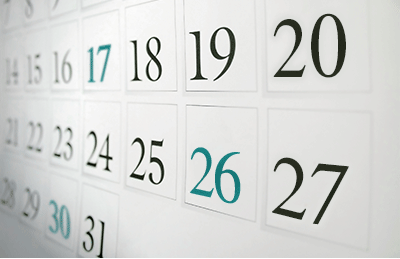
Most standing committees usually meet twice a week, depending on the House of Commons schedule, the committee's workload and a number of other factors. Consult the Meetings page to find out about the upcoming meetings of all the committees or a specific committee.
All MeetingsOnce in the committee meeting room, visitors should be seated in the area reserved for the public.
Visitors must always respect the rules of order and decorum in the committee room. Participating in any form of demonstration inside the buildings is prohibited.
All visitors, including witnesses, are required to go through security scanning to enter the Parliament Buildings. Line-ups are to be expected.
All public committee meetings can be followed live on the Internet via ParlVU. ParlVU also offers on demand viewing of the deliberations of past televised House of Commons committee meetings and audio of all other House of Commons committee meetings open to the public.
Webcasts (ParlVU)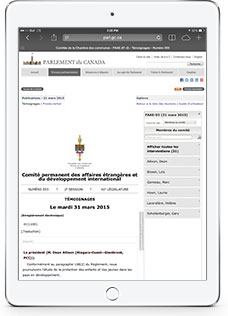
The Evidence is the in extenso transcript of what is said during a committee meeting. The Evidence includes remarks made by committee members, committee staff and witnesses appearing before the committee. The Evidence is usually available on the committee’s Web site within 10 calendar days of the meeting. The Evidence is published for public meetings, or for those parts of a meeting that are held in public, and is prepared in both English and French.
To access the Evidence, click on the Meetings page, then click on the Evidence for a specific meeting on the committee’s webpage or do the same on the Meetings page that displays information for all the committees.
